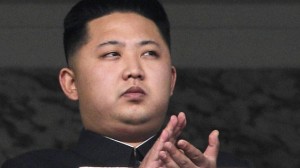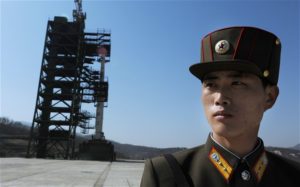A distinct sense of déjà vu has gripped the Korean peninsula, as Pyongyang now threatens to conduct a nuclear test in the forthcoming weeks, smarting from the embarrassment of its failed satellite launch to mark Kim Il-sung’s birthday in mid-April. The current sequence of events is almost a carbon copy of those that led up to Pyongyang’s last nuclear test in 2009. This time round, however, there is far greater danger as the regime’s young leader seeks to buttress his leadership through a host of nationalistic displays of the state’s military might.
Accompanying the significant blow dealt by the failed launch has been the regime’s routine rhetoric directed at their South Korean neighbours. However, the latest international outcry has followed last week’s declaration from a senior regime official that “preparations are almost complete” for the state’s third nuclear test.

That this announcement comes in the face of such international censure is indeed cause for concern, as it illustrates that the impetus for Kim Jong-un to consolidate his leadership far outweighs any motivation to diffuse tension. In such capricious circumstances, one thing is at least clear – the regime’s ardent determination to project power is symptomatic of a desperate leader struggling to legitimize his rule.
Whilst the consistent condemnation and mounting sanctions emanating from the West will only decrease the likelihood of cooperation, China’s sway with North Korea could well be the only remedy. On this front, Beijing’s increasing adherence to international norms could be accompanied by a tougher stance on North Korean assertiveness in the future.
Despite the controversy about the showcasing of a Beijing-built missile transporter at a recent North Korea military parade, China’s decision to condemn North Korea at the Security Council could be the harbinger of a tougher, more resolute commitment to keep Pyongyang in check.
But on the other hand, rebuking North Korea could serve only to force the regime’s hand, encouraging even more bellicose behaviour from the hermit state. Indeed, the coupling of a more inflexible Beijing and increasing international castigation could well back Kim Jong-Un into an even tighter corner. Here, any impulse to denuclearize and conform to normative conventions would soon evaporate, putting the region’s future security under even thicker clouds of uncertainty.

Ultimately though, nothing is certain with a state subject to such mercurial shifts in posture. With the inevitability of some sort of nuclear display in the upcoming months, there seems to be no immediate solution to the North Korea situation. Whilst the six-party talks could serve to ease tensions, as they have done in the past, the domestic origins of Pyongyang’s assertiveness mean that change has to come from within. All in all though, we can only speculate about the powers that operate behind the esotericism of North Korea’s political leadership.
Alex Ward